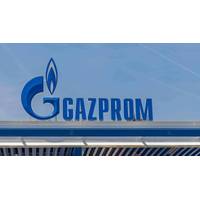Global LNG-Prices Slide as Australia, Nigeria Offer Fresh Supply
Asian spot liquefied natural gas (LNG) prices extended losses this week as demand in December and January flat-lined, which is likely to have reduced interest for two sell tenders by Australia and Nigeria.
Spot LNG prices <LNG-AS> for January delivery fell 70 cents week-on-week to around $10.10 per million British thermal units (mmBtu) on Friday, while prices for December delivery dropped to $9.85 per mmBtu.
Pockets of demand from Indian and Chinese buyers could not hold back the sell-off, which extended for a fifth straight week, traders said.
More supply is due from Australia's North West Shelf export project, which on Monday will close a tender to sell at least four cargoes for December and January loading.
The tender is likely to draw limited demand from Asian buyers, which are facing lower winter import costs for the first time since the Fukushima nuclear disaster in 2011, thanks to high inventories left over from a mild summer and winter.
"Buyers are careful to indicate any demand. They've been saying for months in a very disciplined manner that they don't need any cargoes whatsoever," a trader from an oil major said.
"But they do buy here and there. If you call them, they will say they're not buying anything until April," he said.
A single-cargo tender by Nigeria's Bonny liquefaction plant to sell LNG for loading in mid-December was due to close on Friday, sources said.
But with Asian demand falling and the spread between Atlantic and Pacific markets collapsing, the volumes were likely be consumed within the Atlantic Basin, not Asia.
Europe is set to become a dumping ground for the world's unwanted gas supplies this winter as Asian demand for sea-borne shipments fizzles out, leaving dealers to seek out willing buyers at rock-bottom prices.
Traders see LNG at $8 per mmBtu as achievable as mild weather forecasts dampen Asian demand and weak oil prices add pressure to spot LNG as long-term, oil-linked LNG deliveries become more competitive.
Falling oil prices effectively lower the ceiling beneath which spot LNG prices can remain competitive, especially in a currently oversupplied market.
Traders who have not cleared long positions, including those who are storing LNG on the water, are showing increasing eagerness to sell off supply, another trader said.
(By Jacob Gronholt-Pedersen and Oleg Vukmanovic, editing by Jane Baird)



